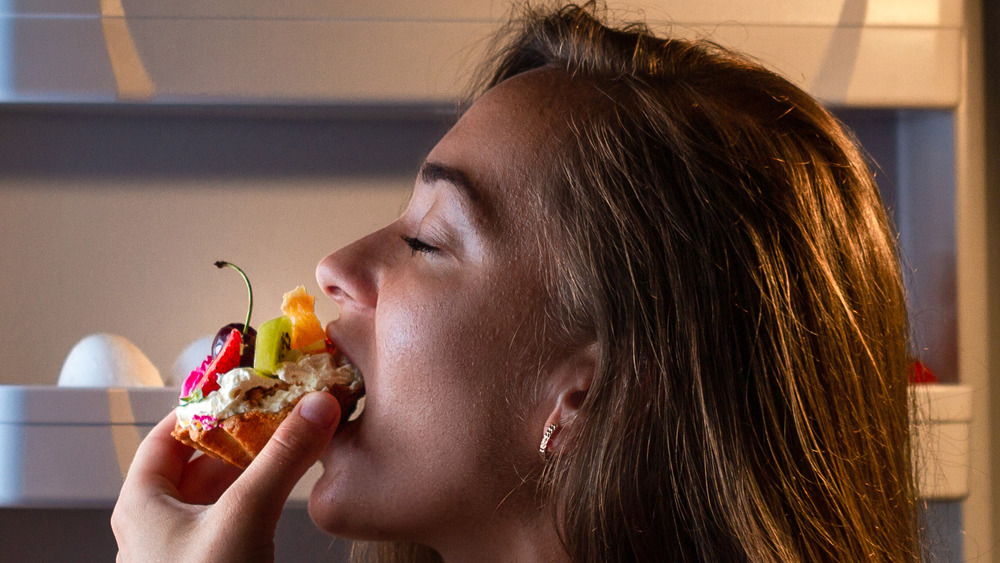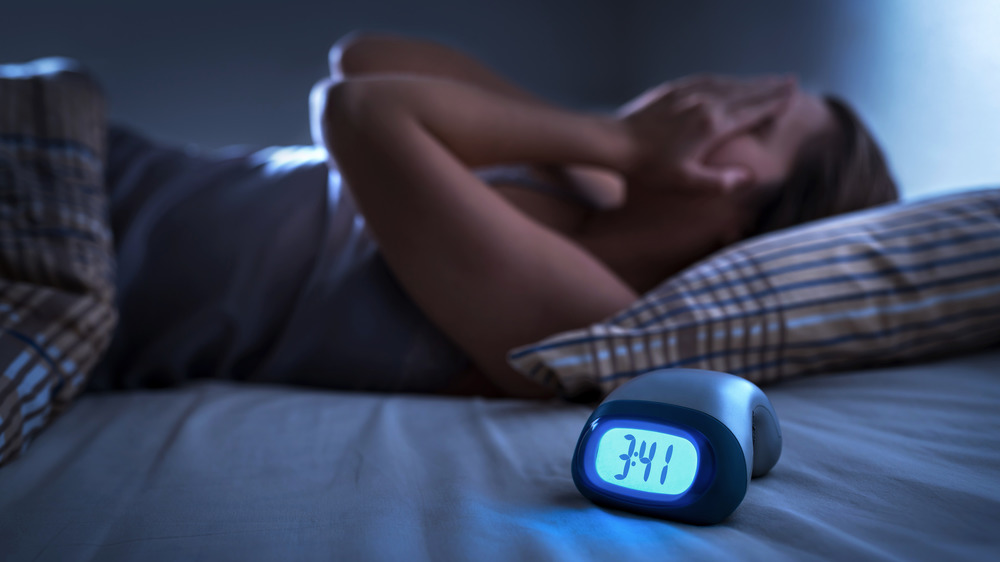How Eating Too Much Before Bed Affects Your Dreams
Most of us have been guilty of going to bed with an uncomfortably full stomach. And hey, we totally understand! That handful of potato chips may have accidentally turned into a whole bag binge. And digging into tasty dinner leftovers just before shutting off the lights can really hit the spot if you were left wanting more. Unfortunately, indulging in those late-night cravings may trigger gastroesophageal reflux disease (GERD) or an upset stomach, making it harder to fall asleep (via Self). If you're lucky enough not to suffer from these symptoms due to your nocturnal binge, it doesn't mean you're in the clear as you drift heavily into your REM cycle. Here's the dish on how your late-night snacking can affect your dreams.
If you are one to feel frustration over not being able to recall what you dreamed about, then this next symptom of late-night eating may not be considered a negative. Nocturnal eating has been shown to trigger night sweats. Especially if it was a meal high in carbs (oh hello late night pizza delivery). This is because the body generates heat while it works to metabolize food. So if you are suddenly woken up in the middle of a dream because of disturbing night sweats, then it may make you feel "closer" to your dream, and make it easier to recall more vivid details (via Harvard Health Publishing).
Eating too much before bed can cause you to dream more
In addition to late-night, noshing-induced night sweats having the potential to interrupt your dreams, it has also been proven that your midnight picnic may be causing you to dream more. As stated previously, the extra food before bed causes a boost to your body's temperature, as well as your metabolism. These two increases are linked to extra brain activity during REM sleep. And more brain activity during REM results in more dreams (via Restonic). There is also a popular belief that nocturnal eating can cause nightmares. And while there is no direct link between the two, we know the late-night meals cause a rev in brain activity, which could possibly lead to having nightmares (via Sleep.org).
If you are having nightmares or your sleep is being disrupted by your dreams, then try avoiding the cravings before bedtime. Rajkumar Dasgupta, MD, a clinician and associate professor at Keck Medicine of USC's Division of Pulmonary, Critical Care and Sleep Medicine, recommends shrinking or skipping your late-night indulgences to see if that is helpful to your quality of sleep (via Self).

